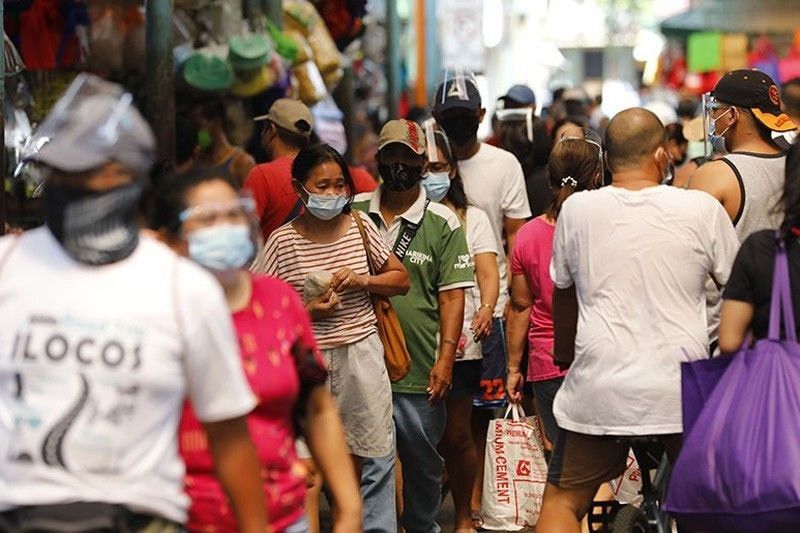December inflation likely stayed above BSP target, economists say

MANILA, Philippines — Several economists are convinced inflation remained above the two to four percent target range of the Bangko Sentral ng Pilipinas (BSP) because of higher electricity prices, elevated food prices and the impact of Typhoon Odette.
Security Bank chief economist Robert Dan Roces said inflation may have accelerated to 4.4 percent in December from 4.2 percent in November on the back of higher power rates and elevated food prices.
“This is the upper figure of our new forecast range of four to 4.4 percent and the new estimated month-on-month change is one percent,” Roces said.
Roces said the food basket is now estimated to have contributed around 1.6 percent to December’s inflation reading, growing by around 1.9 percent month-on-month.
Likewise, Roces said the utilities basket is still estimated to have contributed to around 1.1 percent to the December consumer price index (CPI) due to higher electricity bills as deferred costs from the Malampaya shutdown are collected.
Roces said primary upside risks remain from inflationary pressures in the aftermath of Odette, as well as global crude and other commodity price upward movements.
On the other hand, Roces said the downside risk could emanate from a wider spread of the Omicron variant.
“Favorable base effects may help offset upside risks into 2022 and should give the BSP some further leeway to remain accommodative for the first half of 2022,” Roces said.
Inflation averaged 4.5 percent from January to November 2021, exceeding the BSP’s two to four percent target range due to supply-side shocks caused by rising global oil prices as well as the impact weather-related disturbances and the outbreak of African swine fever (ASF).
Inflation eased for four straight months to hit a four-month low of 4.2 percent in November from 4.6 percent in October. It peaked at a 32-month high of 4.9 percent last August.
Michael Ricafort, chief economist at Rizal Commercial Banking Corp. (RCBC), said inflation eased slightly to 4.1 percent in December, primarily due to the impact of Odette.
“One of the biggest catalysts for the country’s inflation for December would be the relatively large storm damage brought about by Typhoon Odette that hit hard some areas in the Visayas, Mindanao, and Palawan. The disruption could lead to some temporary increase in prices triggered by limited electricity, shortages of water, telecommunications, fuel, and damage to infrastructure which also delayed the transport of goods and people,’’ Ricafort said.
As a result, Ricafort expects a drag to gross domestic product (GDP) growth in the fourth quarter, leading to some temporary spike in overall inflation.
Other than the latest storm damage, Ricafort said higher electricity prices in recent months could also add to inflation during the month.
Electricity rates for households serviced by the Manila Electric Co. (Meralco) increased by P0.3143 per kilowatt-hour (kWh) to P9.773 per kWh due to higher generation charge caused by the Malampaya shutdown in October.
This followed the November increase of P0.3256 per kWh, the highest increase this year.
“The expected increase in the Christmas holiday demand and prices could also lead to some seasonal pickup in inflation for December, but could subsequently ease upon crossing the new year,” Ricafort said.
According to Ricafort, concerns that the Omicron variant could slow down global economic recovery led to some downward correction in global commodity prices from elevated levels, especially oil prices.
Ricafort said the slight appreciation of the peso exchange rate versus the dollar for most of December in view of the seasonal increase in remittances from overseas Filipino workers (OFWs) and conversion to pesos during the Christmas season could also help ease import prices and overall inflation.
Alvin Arogo, economist at Philippine National Bank (PNB), said inflation may settle at four percent because of the adverse impact of weather disturbances on food prices and higher consumer demand pull due to the loose restrictions during the holiday season.
“This is due to surprising threat of Typhoon Odette, however, the risk is tilted to the upside as the ensuring agricultural damage and logistics challenges may have increased food prices more than our baseline expectation,” Arogo said.
- Latest
- Trending






























